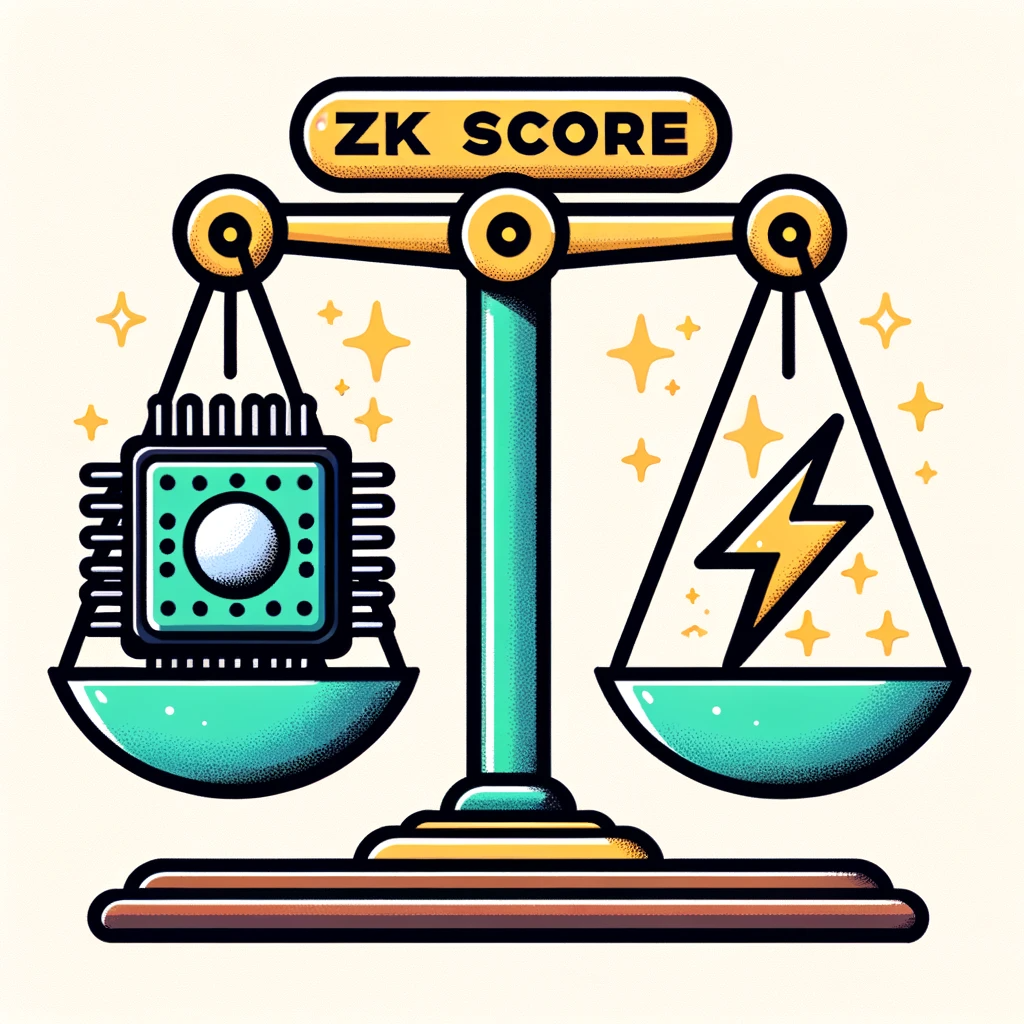
ZK Score - ZK hardware ranking standard
Zero Knowledge Proofs (ZKPs) are on the verge of going mainstream. Amid these growing pains, and with an eye on more mature technologies that have undergone this transition, we recognize the importance of having a clear framework for comparing different ZK tech stacks. As we demonstrate below, this remains a complex open question. We argue that a good first step would be to use ZK Score: upper-bounding the proofs-per-Joule at the hardware level.

Revisiting Paradigm “Hardware Acceleration for Zero Knowledge Proofs”
In April 2022, Paradigm.xyz released a blog post about ZK hardware acceleration. We go back to this piece with the goal of giving a more precise account given certain inaccuracies in their analysis as well as presenting some new data points and arguments to enrich the original text based on our experience working in the field.

Hardware-friendliness of HyperPlonk
In this note we provide the hardware perspective on HyperPlonk. We focus on the main building block, the Multivariate SumCheck protocol and compare its computational and memory complexity to that of an NTT (Number Theoretic Transform).

Identity is the Key
In this write-up, I will try to account for my humble journey going from a crypto wallet to a DID system, while uncovering some new, at least for me, research questions in DID.

“Alpha-Rays” behind the scenes
In a recently published paper, we describe two attacks on threshold ECDSA implementations. The uniqueness of the attacks is that they are rooted in issues found in the protocol itself. We hereby describe the events that surrounded the discovery, handling, and patching of the impacted code.

Cryptosat: The Incarnation of the trusted party
We write on how carefully designed satellites can unlock powerful cryptography

FS-DKR: One Round Distributed Key Rotation
In this note we aim to re-purpose the Fouque-Stern Distributed Key Generation (DKG) to support a secure Distributed Key Refresh (DKR). As we claim, FS-DKR is well suited for rotation of threshold ECDSA keys.

Introducing Guaranteed Access 2.0 (aka Chill Storage)
Tl;dr: What would happen to your funds in ZenGo if we (or your favorite wallet) stopped operating? ZenGo Guaranteed Access (aka Chill Storage) is our answer to providing full peace of mind and we are bringing today an innovative approach to building an even more robust and trusted solution.

MPC-Over-Signal
In this blog we show how we use the Signal messenger server to facilitate secure communication over the internet between nodes in a network. We leverage this infrastructure to run a secure multiparty computation (MPC) and specifically to run a threshold BLS signature protocol. Our open source library (written in Rust) utlilizes the existing yet undocumented Signal server API and can be used to build applications with baked-in security and privacy properties.

Baby Sharks
Curve25519 has the following group structure: P = bB + tT , where B is a generator of a subgroup of prime order L, and T is a small torsion point which generates a small subgroup of order 8. Curve25519 has a complete twisted Edwards addition which makes Elliptic Curve Cryptography atop Curve25519 very efficient.

DogByte Attack: Playing Red Team for Eth2.0 VDF
Diogenes is an ambitious project to design and run a “ceremony” to generate an RSA modulus. The Ceremony is a multiparty computation (MPC) protocol of an unprecedented scale. Once completed, the generated modulus will be incorporated into a VDF protocol, which will be used as part of an unbiased random beacon in the Eth2.0 blockchain.

Diogenes Octopus* : Playing Red Team for Eth2.0 VDF
Diogenes (paper) is an ambitious project to design and run a “ceremony” to generate an RSA modulus. The Ceremony is a multiparty computation (MPC) protocol of an unprecedented scale. Once completed, the generated modulus will be incorporated in a VDF protocol, which will be used as part of an unbiased random beacon in the Eth2.0 blockchain.

SuperMarlin : Adding Transparency to Marlin using 1k lines of code
We show a proof of concept for Marlin Zero Knowledge proving system, compiled with DARK polynomial commitment, based on class groups of unknown order. The resulting Supermarlin eliminates the need for a trusted setup (transparent). In this post we describe the technical details of the proof of concept and where to take it from here.

MPC 2020 Predictions
At ZenGo one of our core technologies is secure multiparty computation (MPC). MPC allows independent parties to execute functions over individually secret data without disclosing the data itself. MPC has been carefully studied and developed over the last 4 decades, with a multitude of cryptographic protocols proposed by academics (ranging from mental poker to secret coding protocols) but only recently the technology has made its practical breakthrough into blockchain industry.

Refresh When You Wake Up: Proactive Threshold Wallets with Offline Devices
A wallet is client side software responsible for communication with a blockchain and for managing users’ keys. A threshold wallet is a distributed wallet which is not controlled by a single party, but by a set of parties according to some access structure

Introducing Multi-Party ECDSA library
In Multiparty computation (MPC), a set of parties that do not trust each other try to jointly compute a function over their inputs while keeping those inputs private.

Threshold Signatures Explained
Threshold Signature Scheme (TSS) is a cryptographic primitive for distributed key generation and signing. The use of TSS in blockchain clients is a new paradigm that can provide numerous benefits, especially in terms of security.